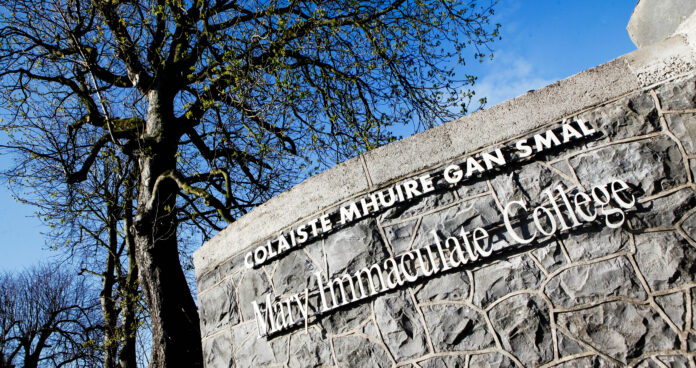
A LIMERICK educational institution has one of the lowest drop-out rates in the country, a study by the Higher Education Authority (HEA) has found.
Mary Immaculate College (MIC) had just six per cent of first year students who did not progress on in the 2020/2021 college term, according to the HEA.
The college did, however, mark a two per cent increase in drop-out rates on the previous year.
In a statement to the Limerick Post, a spokesperson for MIC said: “Mary Immaculate College (MIC) boasts a student progression rate of 94 per cent. This is one of the highest progression rates in the country and means only 6 per cent of students exit their programme of study before graduating.”
“The fact the majority of our students are happy with their programme of choice, and prosper, can be attributed to MIC’s student-centric ethos, highly supportive atmosphere, and multi-faceted learning environment.”
The Limerick institution with the most drop-outs recorded was the Technological University of the Shannon (TUS) with a rate of 17 per cent, also up two per cent on the previous year.
However, given that TUS also has campuses in Thurles, Clonmel, Athlone, and Ennis, it is not clear how many drop-outs relate to the Limerick campus.
A spokesperson for TUS said that the university’s figures compare “favourably with other technological universities. In fact, TUS has the joint highest progression rate, that is the lowest non-progression rate, in the sector (technological universities).”
The University of Limerick showed a 10 per cent drop-out rate, an increase of five per cent on the previous period.
In a statement, UL Provost and Deputy President Professor Shane Kilcommins said that there are many reasons students decide not to progress and that they are “monitoring” the trends.
“There are many reasons for this and we are keenly aware that there are a range of factors that can have an impact on those attending university, including things like the wrong choice of course, accommodation issues, cost of living, commuting, work, and other requirements,” Prof Kilcommins said.
Despite the increases in drop-outs seen locally, the HEA found that nationally the rate of college drop-outs was decreasing, falling from 16 per cent in 2010/2011 and 12 per cent in 2018/2019 to just nine per cent in 2020/2021.
Those studying courses at level six or level seven were far more likely to not progress, with 16 and 18 per cent respectively choosing to exit their studies, compared to eight per cent of first year students studying a course at level eight.
The research found that the ‘services’ field of study had the highest non-progression rates at 16 per cent, followed by ICT at 15 per cent and engineering, manufacturing, and construction at 13 per cent.
The field with the lowest non-progression rate is education at just three per cent.










